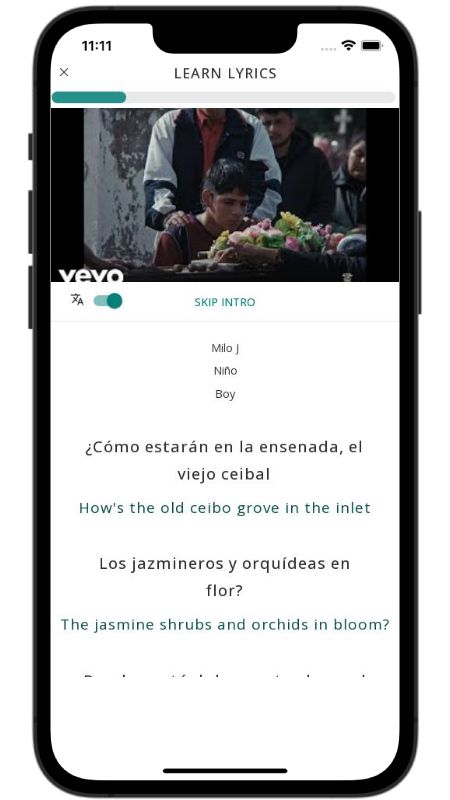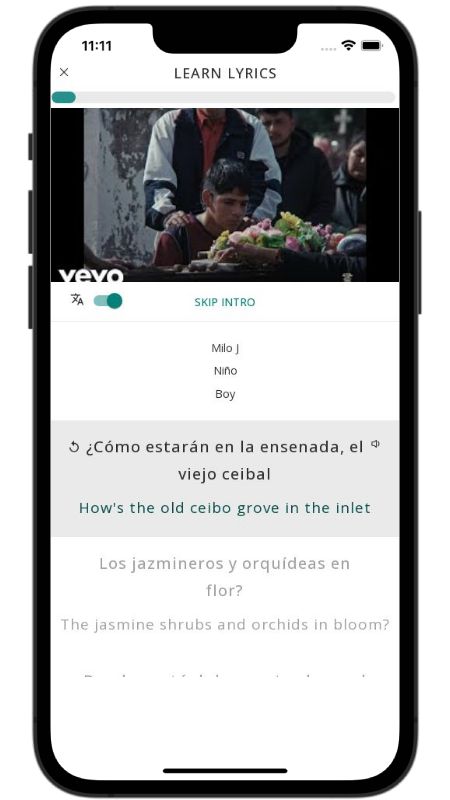Niño Lyrics in English Milo J
Below, I translated the lyrics of the song Niño by Milo J from Spanish to English.
These lyrics have verified word for word translations. Click any lyric word to see the translation and hear the pronunciation!
Intro
How are in the cove, the old ceibo grove
The jasmine shrubs and orchids in bloom?
Where the thrush sang sweetly
I want to see myself again in your cambá eyes
'cambá' could be dark/dusky
And for you to kiss me like I kissed you
Under the jacarandá’s shade
Verse 1
Kid, lean on my memories, try to sleep in peace
I feel the weight in your conscience because of mom's crying
I saw that fear of abandonment won't let you breathe
I feel the knot in your belly when they talk about dad
Kid, make peace with life, the meadow isn’t made of stone
The nostalgia of your past won’t let you walk
Who killed your little smile of hope and kindness?
I know you want to sleep not wake up again
Chorus 1
Love, don't cry
I see light in your pain
Following your heart
Dancing in a song of thrushes
Verse 2
Kid, I’m a man with sorrow, I know the weight of your truth
They let you off for stealing, because you steal to eat
I saw your fingers in the mud smelling of freedom
I know you want to sleep not wake up again
You go through the world like a rascal, with a sweet heart
I saw life on your knuckles and its hatred etched in your dimples
You prayed for some friends, since not everyone makes it to heaven
But you are a grail
Chorus 2
Love, don't cry
I see light in your pain
Following your heart
Following your heart, dancing in a thrush's song
Love, don't cry
I see light in your pain
Following your heart
Outro
Son, the moments I let slip away stole the light from your little eyes
I begged fate for more time, and it said, ‘today’s your turn’
I know one day you’ll be grown, I know one day you’ll understand
Your old man's advice, I'm resting in peace
Lyrics and Translations Licensed & Provided by LyricFind
Lyrics © Sony/ATV Music Publishing LLC
Did you like this lyrics translation?
Did you know?
In addition to reading lyric translations, you can now learn Spanish with music and lyrics from your favorite artists.
Yes, including Niño by Milo J!
No more boring lessons. You can now learn with engaging and culturally relevant lyrics from the best artists.
Apple and App Store are trademarks of Apple Inc.
Google Play and the Google Play logo are trademarks of Google LLC.
iOS AppAndroid AppWeb LessonsFree PDF WorksheetsJoin ClassroomLyrics TranslationBlogAbout UsBuy as GiftLifetime























